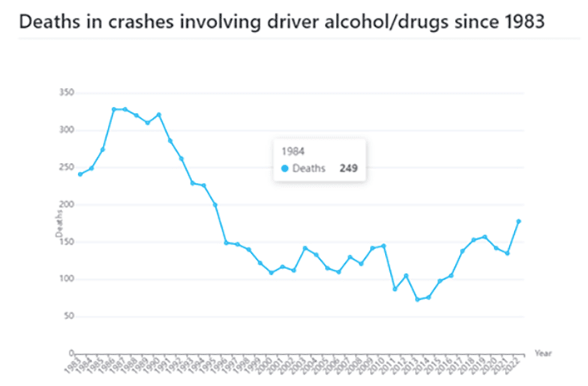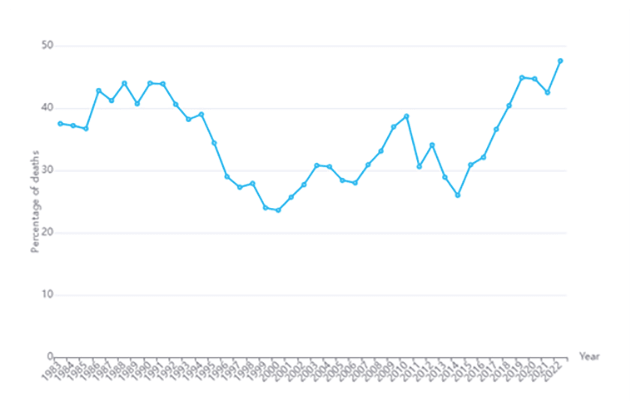
Congestion Pricing: A Balanced Approach
Posted: 23-Aug-2024 |
Unsurprisingly there was some criticism of our support for congestion pricing after the Transport Minister said he was introducing legislation to allow this to go ahead.
Simon Wilson from The New Zealand Herald said it was “breathtaking arrogance” that we suggested truckies should be exempt from congestion pricing.
For those that thought I was being arrogant, I apologise because that was certainly not how I intended to come across. Road pricing is a highly emotive issue and in hindsight I should have better explained the rationale for us taking that position.
As was clearly shown during Covid, the movement of freight is essential to the economy and our people. It seems an eternity ago, but I remember the angst in our office when MBIE proposed that transport operators be assessed in regard the necessity for them to be on the road during Covid lockdowns. MBIE even developed an assessment tool for that very purpose.
At the time Transporting New Zealand was appalled at the bureaucratic nightmare that this could have caused, not to mention the issues with practicable enforcement of such a step. There were also cases of operators being told the freight they were carrying was not essential, and similarly there were cases of vehicles being inspected for CoFs being turned away as inspecting organisations said they weren’t carrying essential freight.
Thankfully, after some serious lobbying, commonsense prevailed and road freight was recognised in the Covid Response Regulations as being an essential service.
Inherent to congestion pricing is the availability of alternative forms of transport and reducing travel that is discretionary. If trucks could find alternative ways to travel so their goods could reach their destinations faster and more reliably, they would.
Trucks travel on the routes and at the times they do because they don’t really have other options available to them. As was recognised during Covid, truck travel is not discretionary travel and that is why congestion pricing should not apply to it.
As well, not adding a congestion charge to essential travel will also help manage the risk of increasing the cost of living.
This is a fundamental policy issue. It is not a position we are taking because we are arrogant, and our view is also shared by some international transportation academics. Finally, arrogance can be seen as looking down on others, which is not something we do.
Testing target
Some other big news this week was Transport Minister Simeon Brown setting a yearly target for Police to perform 3.3 million roadside alcohol tests with a requirement that 65 per cent of breath tests are done at high or extreme alcohol risk times. Funding will also be provided to deliver roadside drug testing with a target of 50,000 tests per year once the new regime is implemented.
It is unfortunate that there appears to be increased illegal drug use in society, and it seems only good luck that there weren’t more tragic outcomes resulting from the methamphetamine lollies that were inadvertently distributed by Auckland City Mission.
Over the last decade there has been an increasing trend in the number of deaths in crashes involving alcohol and drugs.

Safety — Annual statistics | Ministry of Transport
What is even more concerning is the increasing trend and the percentage of fatal injuries in motor vehicle crashes involving alcohol or drugs. In 2022, the most recent Ministry of Transport data, that reached a high of 48.4 percent.

Transporting New Zealand’s policy positions are evidence-based and given the trends in alcohol and drug related crashes, we continue to support testing.
| NZTA data sharing improvements At our Invercargill conference in September 2022 members raised concerns that they were not being informed of the findings of Police roadside inspections. We thought it was important to close this gap and have advocated for it since then. We were pleased to hear NZTA’s announcement this week that it has made improvements to its system and operators can now expect to receive Police Commercial Vehicle Inspection Reports (CVIRs) within 24 hours of vehicles being inspected. Operators will also receive more vehicle information on the vehicles in their fleet, including vehicle weight, when the vehicle has been weighed. |
Views of Industry
Notwithstanding the importance we put on evidence-based decision making, our members views are also vitally important. Our recent survey on policy issues is a good example of that.
I was very pleased to see the good response rate from our members so thanks to everyone who took the time to share their views.
Dom Kalasih, Interim Chief Executive, Ia Ara Aotearoa Transporting NZ




 + EQUIPMENT GUIDE - FREE
+ EQUIPMENT GUIDE - FREE
